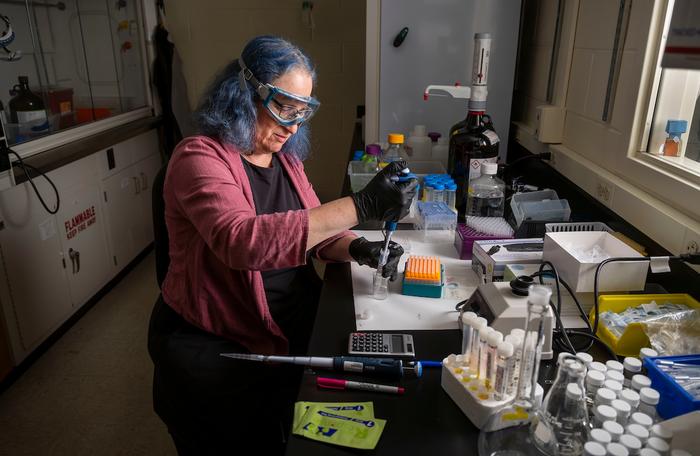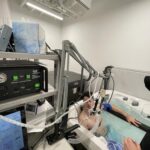
A recent investigative study has uncovered alarming quality deficiencies in cancer medications circulating within sub-Saharan Africa. Spearheaded by researchers at the University of Notre Dame, this comprehensive pharmaceutical evaluation reveals significant discrepancies in the active pharmaceutical ingredient (API) content of chemotherapy drugs sourced from countries including Cameroon, Ethiopia, Kenya, and Malawi. The ramifications of these findings raise profound concerns about treatment efficacy and patient safety in regions where access to reliable cancer care is already precarious.
Central to this investigation is the assay value, a critical indicator measuring the precise amount of active pharmaceutical ingredient within a given medication. Global regulatory standards dictate that for a drug to be deemed safe and effective, its API content must typically fall within a 90 to 110 percent range of the dosage stated on its packaging. Deviations outside this threshold can dramatically affect therapeutic outcomes. If API levels are too low, subtherapeutic dosing may allow residual cancer cells to proliferate and metastasize. Conversely, excessive API exposure increases the risk of toxic side effects, potentially resulting in severe harm or even fatality.
The research, published in The Lancet Global Health, analyzed 251 samples of anticancer drugs collected from a mix of public hospitals and private pharmacies across the studied nations. Disconcertingly, approximately one in every six samples failed to meet the stipulated API criteria. Among the substandard medications documented, API concentrations ranged alarmingly from as low as 28 percent to an excessive 120 percent relative to label claims. Such variance indicates both under-dosing and overdosing scenarios persist simultaneously, complicating clinical management in affected regions.
.adsslot_Yb58moQBVT{ width:728px !important; height:90px !important; }
@media (max-width:1199px) { .adsslot_Yb58moQBVT{ width:468px !important; height:60px !important; } }
@media (max-width:767px) { .adsslot_Yb58moQBVT{ width:320px !important; height:50px !important; } }
ADVERTISEMENT
Marya Lieberman, a professor of chemistry and biochemistry at Notre Dame and the study’s lead author, emphasized the grave implications of these findings. She highlighted that oncology patients require precise dosing regimens to optimize treatment success and mitigate adverse effects. The presence of poor-quality drugs can undermine cancer control efforts and directly jeopardize patient survival rates. Lieberman’s affiliation with several global health initiatives underscores the multidisciplinary nature of tackling pharmaceutical quality challenges within low and middle-income countries.
Visual inspection currently serves as the primary method for assessing cancer drug quality in sub-Saharan Africa. However, the research team’s findings reveal this technique’s inadequacy, as it detected only one-tenth of the problematic medications identified through chemical assay. The limitations of visual screening underscore an urgent need for more sophisticated, yet affordable, diagnostic tools capable of providing accurate, rapid assessments at the point of care.
The study further elucidates systemic factors contributing to the proliferation of substandard cancer drugs across these geographies. Demanding cancer treatment needs outpace the available regulatory capacities, which lack sufficient resources, specialized equipment, and trained personnel to conduct rigorous quality analyses. Additionally, compromised pharmaceutical manufacturing processes, unsafe distribution channels, and inadequate storage conditions exacerbate drug degradation and quality loss before products even reach patients. The researchers suggest that these interconnected challenges likely extend to other low and middle-income countries grappling with similar healthcare infrastructure deficits.
In response to these findings, the researchers propose several strategic interventions aimed at mitigating the prevalence of poor-quality cancer medications. These include deploying cost-effective technologies at healthcare delivery sites to facilitate precise screening and quality control, thereby enabling timely identification of substandard products. Strengthening regulatory frameworks through investment in laboratory infrastructure and personnel training is also critical to empower agencies in monitoring, investigating, and responding to quality breaches effectively.
Cost-benefit evaluations of possible interventions form another important recommendation. By quantifying the economic and health impacts of common pharmaceutical challenges — including stock shortages, unsafe shipping methods, and storage inconsistencies — policymakers can prioritize resource allocation toward strategies that maximize patient benefit. The team also advocates collaborative partnerships with healthcare providers to design location-specific response protocols and communication plans that maintain patient trust while addressing quality concerns transparently.
Building on these recommendations, Lieberman and her laboratory are pioneering the development of an innovative, user-friendly diagnostic device called the chemoPAD. This low-cost paper-based tool is designed to detect the presence and concentration of active ingredients in cancer medications swiftly and accurately. The chemoPAD holds promise for revolutionizing drug screening practices, particularly in resource-limited environments, by bypassing the need for extensive laboratory infrastructure and enabling broader surveillance of pharmaceutical quality throughout supply chains.
Such novel technologies represent a crucial step toward safeguarding patients in vulnerable populations from the dangers posed by substandard drugs. Lieberman stresses that overcoming these challenges demands coordinated efforts spanning scientific innovation, regulatory reform, and global health collaboration. The ultimate goal is to ensure that every cancer patient, regardless of geography, receives safe, effective medications that meet stringent quality standards.
This groundbreaking investigation into pharmaceutical integrity is among the first systematic studies to focus on anticancer medication quality in sub-Saharan Africa, a region where cancer incidence is rising rapidly yet treatment resources remain limited. Its findings spotlight a critical, yet often overlooked, aspect of cancer care delivery: the essential need to guarantee the medicines administered are of uncompromised composition and potency.
Supported by funding from the National Cancer Institute, this study drew on a diverse international team of collaborators, reflecting the multifaceted expertise required to address such a complex global health issue. Institutions spanning from the University of Notre Dame to various universities and health organizations across Africa and the United States contributed to the rigorous data collection and analysis processes.
As cancer burdens escalate worldwide, particularly in under-resourced settings, the revelations from this study resonate broadly for global health stakeholders. Ensuring the pharmaceutical supply chain’s integrity—from manufacturing plants to patient bedside—is paramount for effective disease control and improving survival outcomes. Introducing scalable screening methods and bolstering regulatory strength will be vital to curtail the circulation of substandard medications and to protect vulnerable populations from preventable harm.
This research illuminates a sobering reality: even when anticancer drugs are physically accessible within sub-Saharan Africa, their therapeutic reliability is not guaranteed. The imperative now lies in mobilizing scientific, regulatory, and policy tools collaboratively to close the quality gaps identified, transforming cancer care into a safer and more equitable endeavor across the continent and beyond.
Subject of Research: Quality assessment of anticancer medications in sub-Saharan Africa
Article Title: Substandard anticancer medications in clinical care settings and private pharmacies in sub-Saharan Africa: a systematic pharmaceutical investigation
News Publication Date: 25-Jun-2025
Web References:
– University of Notre Dame: https://www.nd.edu/
– The Lancet Global Health Article: https://www.thelancet.com/journals/langlo/article/PIIS2214-109X(25)00138-X/fulltext
References: National Cancer Institute, National Institutes of Health
Image Credits: Photo by Barbara Johnston/University of Notre Dame
Keywords: Chemotherapy, Cancer treatments, Africa, Quality control, Medical treatments, Drug safety
Tags: access to reliable cancer careactive pharmaceutical ingredient discrepanciescancer treatment efficacy concernschemotherapy drug analysis in Africachemotherapy drug safety issuesdefective cancer drugs in Africaglobal regulatory standards for medicationsimpact of drug quality on cancer treatmentpatient safety in sub-Saharan Africapharmaceutical evaluation studysub-Saharan Africa cancer medication qualityThe Lancet Global Health publication


